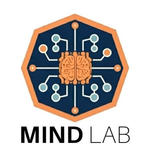

The MIND Lab is is a research group led by Dr Christopher Wilson and Dr Srdan Medimorec at the psychology department at Teesside University. We conduct research in cognition, learning, neuroscience and decision-making.
We have several active research streams ongoing and we willing to take on volunteers who are passionate about psychological research and the good that it can do.
We use a range of tools and techniques in our lab, including:
- Questionnaires
- Computer-based cognitive mesurements
- Neurological (brain) measurements (EEG and fNIRS)
- Phsyiological measurements (Skin Conductance, Heart rate)
Our research increases understanding of how people learn, think and make decisions in a complicated world. We break down these complex processes and examine them from many angles, using a range of teachniques. In the long term, the work we do has the potential to contribute to a wide range of applied fields including mental health, education, technology, healthcare and business. Our route to helping others and solving problems starts by looking at the building blocks of how people think, learn and behave.
We look for people who are:
- Passionate about psychological research
- Are interested in topics connected to cognition, learning and decision-making
- Want to learn and develop their skills as researchers
Our lab delves into the fascinating topics of cognition, learning and decision-making. We use innovative approaches to study the brain, linking mental processes to their neural underpinnings. The lab is a place for people to learn about the research process while contributing to important projects. We foster a collaborative and supportive environment and we want volunteering in our lab to be an enriching and rewarding experience. You will gain hands on experience, and expand your knowledge.
